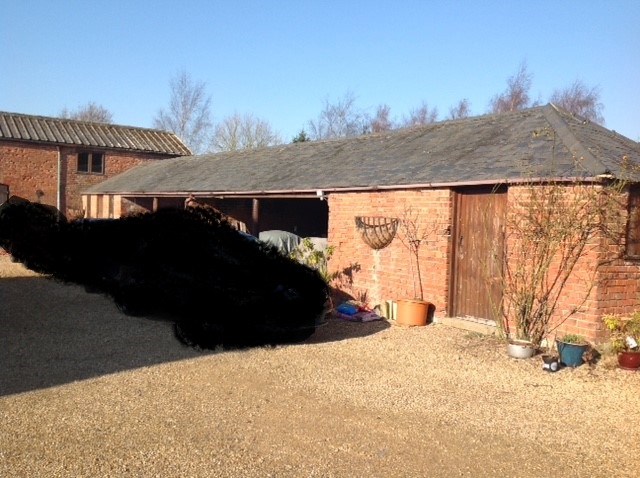About a month ago I decided to stop spending money on anything that wasn't absolutely essential. The holiday and solar panels had depleted the old coffers so I thought a bit of a money diet for March would be a good way to kick off the process of building them back up again.
For 31 days I put my head down and focused on making do with what we had.
I didn't need any clothes, books, magazines or bric-a-brac so charity shopping ceased and my Amazon account had tumbleweed blowing through it.
I haven't been to the garden centre to buy soil (as I usually do at this time of year) and end up with about 20 other things in the basket as well.
When I went grocery shopping, I bought the usual foods on the list I always do along with cat food and a bit of cleaning stuff. No ingredients for complicated aspirational recipes, no interesting shampoos promising hair nirvana. I kept it plain and simple, and left a lot of stuff on the shelf.
When we went to B&Q we bought the one thing we needed and left. No "Ooooo it would be handy to have one of those" and coming out £30 lighter. We realised that we have no idea exactly what we have in the tool barn any more so no more buying anything DIY-related until we have an inventory of what is in there.
So, I reached my 31 NSD yesterday and did a ready reckoner this morning. I estimate we've not spent about £500, which is incredible really. Looking through past bills I can honestly say that I've spent too much money in charity shops by going each week just before food shopping, and none of it could be considered strictly necessary. The stuff I've considered necessary and non-luxuries, mostly household or garden purchases, has added up to hundreds of pounds every month. Bags of compost are hardly luxury purchases. Neither are LED light bulbs, shoe inserts, plumbing tools, new hankies, or replacement tea towels but all of these non-luxuries were not planned and building up every month to quite astonishing levels.
It's clear that I'm going to have to have a rethink about what we spend our money on and when. We got through this month of non-spending fine, it wasn't a stretch by any means. It wasn't difficult to wear the clothes I have, find a book to read from the dozens still waiting on the shelves to be read, eat tasty non-aspirational foods and maintain clean hair that looked the same as it always has. So maybe the way we spend money needs looking at again. We need to break the habit of buying without thinking. We need to use up what we have and then get much more creative when we so need something before we go out and buy it.
For 31 days I put my head down and focused on making do with what we had.
I didn't need any clothes, books, magazines or bric-a-brac so charity shopping ceased and my Amazon account had tumbleweed blowing through it.
I haven't been to the garden centre to buy soil (as I usually do at this time of year) and end up with about 20 other things in the basket as well.
When I went grocery shopping, I bought the usual foods on the list I always do along with cat food and a bit of cleaning stuff. No ingredients for complicated aspirational recipes, no interesting shampoos promising hair nirvana. I kept it plain and simple, and left a lot of stuff on the shelf.
When we went to B&Q we bought the one thing we needed and left. No "Ooooo it would be handy to have one of those" and coming out £30 lighter. We realised that we have no idea exactly what we have in the tool barn any more so no more buying anything DIY-related until we have an inventory of what is in there.
So, I reached my 31 NSD yesterday and did a ready reckoner this morning. I estimate we've not spent about £500, which is incredible really. Looking through past bills I can honestly say that I've spent too much money in charity shops by going each week just before food shopping, and none of it could be considered strictly necessary. The stuff I've considered necessary and non-luxuries, mostly household or garden purchases, has added up to hundreds of pounds every month. Bags of compost are hardly luxury purchases. Neither are LED light bulbs, shoe inserts, plumbing tools, new hankies, or replacement tea towels but all of these non-luxuries were not planned and building up every month to quite astonishing levels.
It's clear that I'm going to have to have a rethink about what we spend our money on and when. We got through this month of non-spending fine, it wasn't a stretch by any means. It wasn't difficult to wear the clothes I have, find a book to read from the dozens still waiting on the shelves to be read, eat tasty non-aspirational foods and maintain clean hair that looked the same as it always has. So maybe the way we spend money needs looking at again. We need to break the habit of buying without thinking. We need to use up what we have and then get much more creative when we so need something before we go out and buy it.






